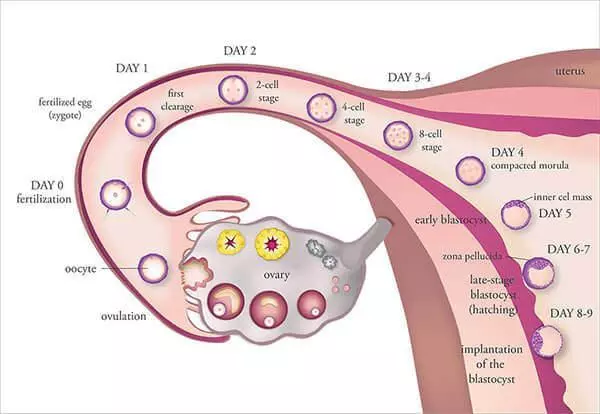
TREATMENTS FOR OVULATION DYSFUNCTION
As an integral part of any in vitro fertilization procedure, Ovulation Induction involves the stimulation of ovulation in an anovulatory patient. “Anovulatory “means that the ovary does not release an egg (oocyte) during the menstrual cycle. The goal of ovulation induction is to stimulate the growth of a single follicle to release its egg. During a typical IVF cycle, superovulation may be expected. Superovulation is what is used to describe the stimulation and growth of multiple follicles to release more that the one, typical egg (oocyte) released during menstruation.

Identifying Infertility Causes
At New Hope Fertility Center, we understand that the first key to successfully treating infertility is correctly identifying all underlying causes that may be preventing you from becoming pregnant. About 20% of all infertility patients show signs of ovulatory dysfunction which contributes to their infertility. It is critical to identify if Ovulation Dysfunction is a contributing factor because without the maturation of an egg pregnancy may not be possible.
WHAT FERTILITY TREATMENTS ARE AVAILABLE?
The current available fertility treatments that address Ovulation Dysfunction are limited and may vary from fertility clinic to fertility clinic. At New Hope, Ovulation Induction is the commonly prescribed approach. Using fertility medication like Clomiphene Citrate (Clomid) or Letrozole, fertility doctors have seen great success in temporarily reversing ovarian failure. This course of fertility drugs is also used to address other issues like Polycystic Ovary Syndrome or PCOS.
Because Ovulation Dysfunction frequently stems from a hormone imbalance, it is rarely an isolated cause of infertility. Many women will find other areas of fertility that should be addressed at the same time. For example, the cervical mucous that helps nourish and guide sperm to the egg during fertilization, might not be present. Male factor infertility might be present as well. When multiple factors are contributing to an infertility status, fertility specialists will frequently deem the case “unexplained infertility.” This simply means that pregnancy troubles cannot be attributed to any one cause. In these cases, it is important that your fertility doctor provides you with a complete evaluation so that you have the best chance of becoming pregnant.
WHAT CAUSES OVULATION DYSFUNCTION?
There are several causes of ovulatory dysfunction, most of which are easy to address:
- Ovarian failure – While there are several reasons for ovarian failure, Premature Ovarian Failure, or POF (also known as Primary Ovarian Insufficiency), is the loss of normal functionality of the ovaries before the age of forty. This may be due to an estrogen imbalance and means that the ovary doesn’t release an egg regularly. This condition is commonly referred to as Early Menopause.
- Chronic Anovulation – This is indicative of an altered or unpredictable menstrual period that is persistent. If you have consistently irregular cycles, please inform your fertility doctor as you may have an ovulatory dysfunction.
- High Body Mass Index (BMI) – Rapid weight loss or weight gain can have a significant impact on a woman’s fertility. Beyond a rapid change, however, studies prove that women with a BMI over 30 are more likely to experience ovarian dysfunction. It is important to consider this as your BMI is something many people can address on their own, at home. Check your BMI: Here.
READ ABOUT OVULATION INDUCTION AT NEW HOPE FERTILITY CENTER
(click the links below for more information)
